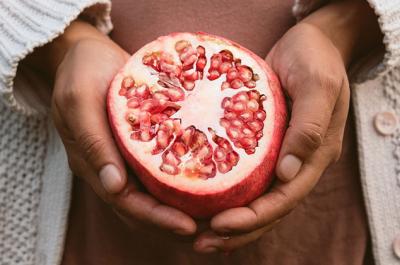What are the chances of pregnancy after miscarriage?

Early pregnancy loss is often a quietly heartbreaking experience. If you’ve gone through it, at some point you’ll likely wonder about your chances of getting pregnant after a miscarriage. You may worry that it’s too soon to try to conceive, or that something is wrong with you if want to wait before trying again.
Know this: There is no right or wrong answer when it comes to early pregnancy loss, because no one can put a timetable on your grief. You will know in your heart when you’re ready to try again.
When you are, you may have some questions. We’re here to help.
In this article
- Can I get pregnant after a miscarriage?
- What if I experience another early pregnancy loss?
- What are the chances of getting pregnant after experiencing multiple miscarriages?
- What can be done, if anything, to help prevent another early pregnancy loss?
- What factors increase the chance of miscarriage?
- When after a miscarriage can you have sex?
- When do you ovulate after a miscarriage?
- What else should I consider before trying to conceive again?
Can I get pregnant after a miscarriage?
According to the American College of Obstetricians and Gynecologists (ACOG), most women who experience an early pregnancy loss are able to conceive again and have a successful pregnancy.1
Most women who experience an early pregnancy loss are able to conceive again and have a successful pregnancy.
What if I experience another early pregnancy loss?
If you experience multiple miscarriages, talk to your healthcare provider. They may recommend an exam and testing to help determine the cause, although often (50-75% of the time), no cause can be found.2
What are the chances of getting pregnant after experiencing multiple miscarriages?
Although the risk of miscarriage increases with each consecutive miscarriage,3 according to ACOG, approximately 65% of women who experience unexplained recurring pregnancy loss go on to have a successful next pregnancy.2
“About 65% of women with unexplained recurrent pregnancy loss have a successful next pregnancy.” — The American College of Obstetricians & Gynecologists
What can be done, if anything, to help prevent another early pregnancy loss?
About half of early pregnancy losses happen when the embryo receives an abnormal number of chromosomes from the fertilized egg.1 On one hand, that should take some weight off your shoulders — almost always, there is nothing you could have done to prevent an early pregnancy loss.
On the other hand, this may leave you feeling a bit helpless, as though you have few options for preventing a miscarriage in the future. Just remember: Most women who experience early pregnancy loss go on to have successful pregnancies.1
If you experience recurring miscarriages, talk to your healthcare provider. Although it may not be possible to find the cause, you can look for clues together. During a visit your doctor will likely ask about your past pregnancies and general medical history, and will perform a thorough physical exam and, possibly, a pelvic exam. Imaging tests can determine if a uterine problem is to blame.2 Additional testing can be done to look at possible problems with the immune system or genetic causes.2
What factors increase the chance of miscarriage?
The chance of early pregnancy loss increases with age; according to ACOG, about one in three pregnancies end in miscarriage for women over age 40.1 If you are older, talk to your healthcare provider about trying to conceive again sooner rather than later.
Some lifestyle changes, such as quitting smoking, lowering your blood pressure and losing weight may decrease the risk of miscarriage.3 If you’re trying to conceive, avoid alcohol and excessive amounts of caffeine (consume less than 200 mg of caffeine per day).4 Talk to your healthcare provider about changes you can make to help give you the best chance of success.
If you’re trying to conceive, consider taking a prenatal vitamin that includes 400 mcg of folic acid each day.5 While studies are inconclusive regarding the relationship between prenatal vitamins and pregnancy loss,6,7,8 it is recommended that you take prenatal vitamins one month prior to being pregnant for many other important reasons, including the prevention of major birth defects.5
When after a miscarriage can you have sex?
Talk to your healthcare provider before having sex after a miscarriage. They will likely see you for a follow-up appointment and can advise you on when it’s OK to have sex again. To help prevent infections, you should not put anything in your vagina for one to two weeks, including tampons.1
If you’re experiencing a fever, chills, severe pain or heavy bleeding following an early pregnancy loss, call your doctor immediately.1
When do you ovulate after a miscarriage?
You can ovulate — and get pregnant — as soon as two weeks after an early pregnancy loss.1 However, you may have a better sense of timing if you wait for one full menstrual cycle to pass before you try to conceive. It’s possible for a home pregnancy test to show a positive result for up to 9 weeks if it detects residual hCG levels from your early pregnancy loss.
Traditionally, women have been told to wait at least three months before trying to conceive after experiencing a miscarriage.9 However, recent studies suggest that this may not be necessary. In one study, researchers found that more than 76% of the women attempted to conceive within three months after losing a pregnancy.9 Compared to those who waited longer, this group was more likely to become pregnant (69% vs. 51%) and to have a pregnancy leading to a live birth (53% vs. 36%).9 The researchers concluded that there is no physiological evidence that supports waiting to try to conceive after an early pregnancy loss.9
What else should I consider before trying to conceive again?
Of course, you’ll need to be cognizant of your emotional health, too. You’ve landed in a club you never asked to be in, which may lead, understandably, to anxiety. And the women in this club have heard it all: “When are you going to try again?” “I read that you should wait six months until you try again.” “I bet once you’re pregnant again you’ll forget this ever happened!” “My friend had a miscarriage and then two weeks later she was pregnant – with twins!” “Don’t worry, everything happens for a reason.”
If you take anything away from this article, let it be this: Early pregnancy loss is often a random event, and it is possible to have a successful pregnancy in the future.1 Try to shut out the noise, no matter how well-intentioned. Consider the statistics and talk to your healthcare provider. But mostly, listen to your heart. The next steps you take may be a little shaky, and the path ahead of you may not be as clear this time around, but think of all the possibility for love and joy ahead of you. All that comes with your first step — but only when you’re ready.
Sources
- “Early Pregnancy Loss,” (November 2021), The American College of Obstetricians and Gynecologists, https://www.acog.org/womens-health/faqs/early-pregnancy-loss
- “Repeated Miscarriages,” (November 2020), The American College of Obstetricians and Gynecologists, https://www.acog.org/womens-health/faqs/repeated-miscarriages
- Dugas, C., Slane, V.H., “Miscarriage,” (updated June 29, 2021), StatPearls [Internet], Treasure Island (FL): StatPearls Publishing, https://www.ncbi.nlm.nih.gov/books/NBK532992/
- “How much coffee can I drink while I’m pregnant?” (October 2020), ACOG,
- “Folic Acid,” (April 19, 2021), National Center on Birth Defects and Developmental Disabilities, Centers for Disease Control and Prevention, https://www.cdc.gov/ncbddd/folicacid/about.html
- Rumbold A., Middleton P., Pan N., Crowther C.A., “Vitamin supplementation for preventing miscarriage,” (January 19, 2011), Cochrane Database of Systematic Reviews, https://www.cochranelibrary.com/cdsr/doi/10.1002/14651858.CD004073.pub3/full
- Balogun, O.O., da Silva Lopes, K., Ota, E., et al, “Vitamin supplementation for preventing miscarriage,” (May 6, 2016), Cochrane Database of Systematic Reviews, https://www.cochranelibrary.com/cdsr/doi/10.1002/14651858.CD004073.pub4/full
- Louis, G., Sapra, K., et al, “Lifestyle and pregnancy loss in a contemporary cohort of women recruited before conception,” (March 22, 2016), Fertility and Sterility, https://www.fertstert.org/article/S0015-0282(16)30042-5/fulltext
- Schliep, K.C., Mitchell, E.M., Mumford, S.L., Radin, R.G., Zarek, S.M., Sjaarda, L., & Schisterman, E.F., “Trying to Conceive After an Early Pregnancy Loss: An Assessment on How Long Couples Should Wait,” (February 1, 2016), Obstetrics and Gynecology, 127(2), 204–212. https://doi.org/10.1097/AOG.0000000000001159




